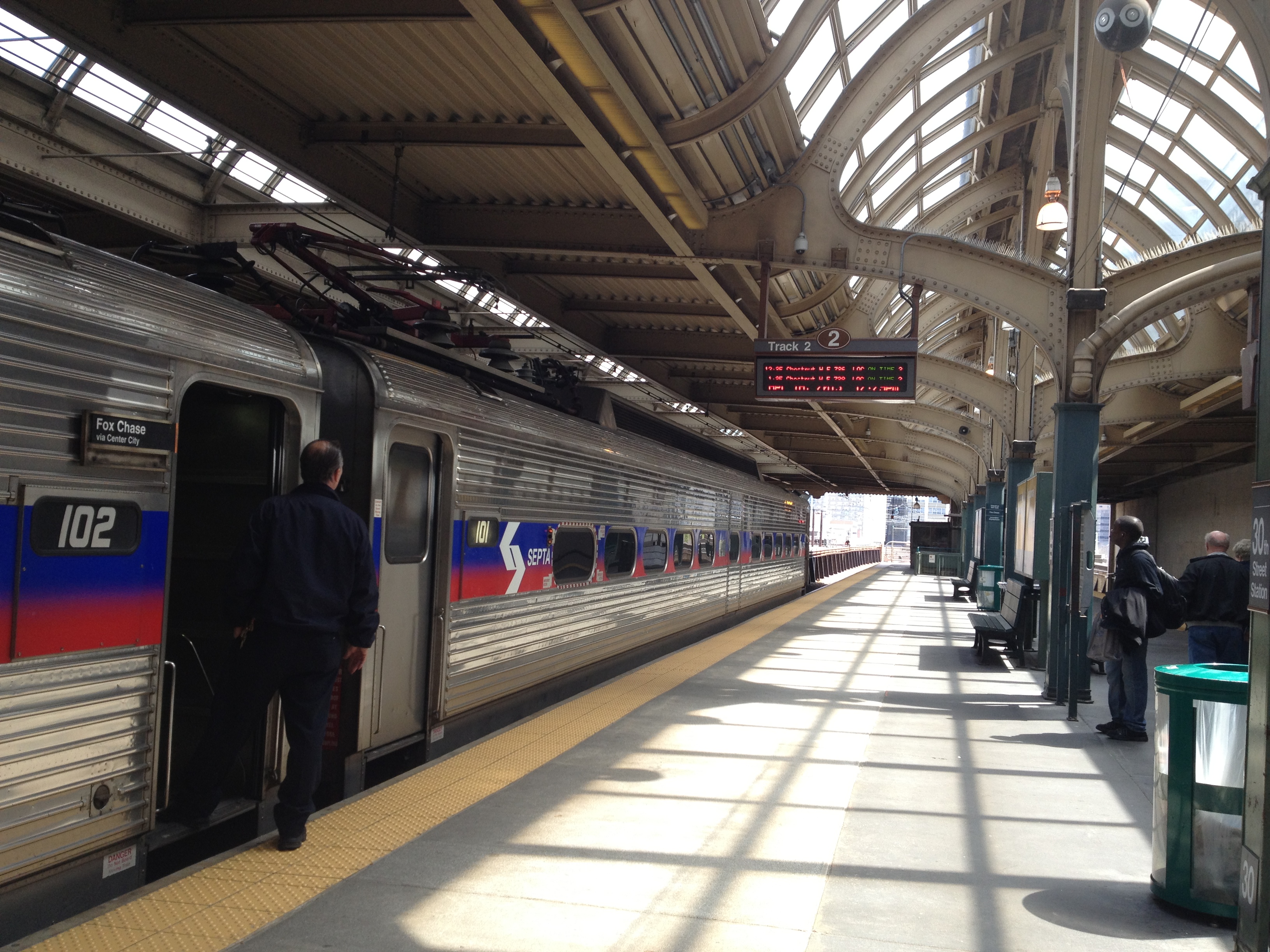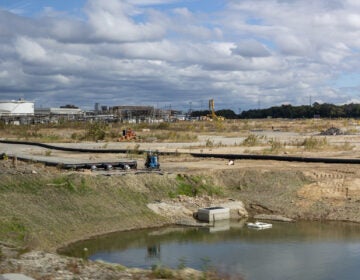Shuttle buses replace Chestnut Hill West weekend service

Beginning this weekend and running through most of August, shuttle bus service will replace weekend trains between North Philadelphia and Chestnut Hill West stations on the Chestnut Hill West line.
On Saturdays and Sundays beginning July 20 and continuing until August 25, the shuttle service will keep trains off of the Chestnut Hill West line so that SEPTA can complete necessary signal upgrades, a track interlocking improvement, catenary work and some additional line upkeep.
Chestnut Hill West sees roughly 1,930 trips on an average Saturday and approximately 1,353 trips on an average Sunday.
A media advisory cautioned these passengers to add 30 minutes to their travel time, but SEPTA’s Deputy General Manager Jeffrey Knueppel said a trip along the Chestnut Hill West line via shuttle should not take any longer than it would via regional rail. This is partially due to the unique shuttle schedule, which will run two express services in each direction.
“What we decided to do, and it was pretty clever and it results in a little bit more bussing, what we’re going to do is run busses from the end of the line and the mid-point,” Knueppel said.
One inbound shuttle will make stops at Chestnut Hill West, Highland, St. Martins and Allen Lane stations before expressing to North Philadelphia Station. The second inbound shuttle will make stops at Carpenter Lane, Upsal, Tulpehocken, Chelten Avenue and Queen Lane stations before expressing to North Philadelphia Station. On Saturdays the inbound trains between North Philadelphia Station and Center City will depart 10 minutes later than regularly scheduled.
Headed outbound, passengers will take the Chestnut Hill West train as far as North Philadelphia Station. There they will board either the shuttle for Chestnut Hill West Station, making stops at Highland, St. Martins and Allen Lane, or the shuttle bound for Carpenter Lane Station, making stops at Upsal, Tulpehocken, Chelten Avenue and Queen Lane stations. Outbound shuttle departure times will be earlier than regularly scheduled train times.
Knueppel said it would have been a real challenge to run each shuttle bus out to the end of the line and back, so instead SEPTA went with this express shuttle scheme.
“We just felt it was the right thing to do for our customers,” Knueppel said.
Signal upgrades, interlocking improvement and general maintenance
While shuttle service is running, SEPTA has a list of improvements it will tackle.
“The impetus to this first is the signal work, but rather than upgrade signals on a branch and not do things to improve operation, we’ve commingled the signal work with the new interlocking,” Knueppel said.
The signal work will get SEPTA one-step closer to complying with the federally mandated positive train control (PTC) system. PTC, which is being mandated nationally, is meant to provide additional safeguards to keep passenger trains from colliding and operates through train signals. One line at a time, SEPTA has been moving through the system and installing automatic train control (ATC). Once this ATC is installed, a contractor will come in and overlay additional technology that will bring SEPTA up to PTC compliance. The total cost of this work throughout the system is expected to be roughly $330 million.
It will only take SEPTA one weekend to make the signal upgrades and complete the ATC installation.
“The signal projects go a lot faster when there are no grade crossings, and Chestnut Hill West has no grade crossings,” Knueppel said.
While the line is shut down, crews will chip away at a list of other upgrade and maintenance projects.
At the beginning of the line before Queen Lane Station, crews will install More Interlocking, a new interlocking that will allow trains to switch from one track to another without changing directions.
“Right now on that branch there are hand throw crossovers that are really very difficult to work with,” Knueppel said. “You actually, literally have to have somebody out on the field to throw the switch.”
With the new interlocking, SEPTA will be able to operate the switch from the control center at its Center City headquarters. This is especially important in emergency situations or when future maintenance or delays block portions of the line because SEPTA will have more flexibility in deciding which track to run Chestnut Hill West trains on.
“It’s a long overdue improvement,” Knueppel said.
Crews will also perform track work aimed at getting maintenance vehicles on and off the line more efficiently, do some concrete wall repairs near the end of the line and complete drainage and other routine work.
While trains are on hold, PennDOT will do exploratory work on two bridges, one near Coulter Street and another near Allen Lane. At the same time PECO will be working on overhead transmission lines, and SEPTA will work on the catenary structures that hold PECO and SEPTA catenary wires.
SEPTA will also paint some portions of the line. That includes painting over graffiti.
“I ride all over the place, and I can tell you it just seems to be there’s no rhyme or reason where you get graffiti anymore,” Knueppel said.
While he wouldn’t say if there is more graffiti on the Chestnut Hill West line versus other parts of SEPTA’s regional rail network, Knueppel did say graffiti tends to pop up where ever it is popular at a given time.
All in all, the project budget for work on Chestnut Hill West is set at $14.9 million, but SEPTA expects it will come in under budget.
Next up, SEPTA’s Cynwyd Line
Work on the line will continue after weekend service resumes as normal on August 25, but it should not cause service disruptions. Knueppel said work will wrap up by the winter.
Similar work is in progress on the Norristown line, which previously experienced its share of weekend shuttle service. After the Chestnut Hill West and Norristown line upgrades are complete, only the Cynwyd and West Trenton lines will need ATC upgrades. Crews will move to the Cynwyd line this January.
As PlanPhilly reported previously, SEPTA has applied for federal funds to complete the West Trenton signal upgrade project, which is slightly more complicated due to shared territory with CSX.
SEPTA must have positive train control on all of its lines by the end of 2015.
“We’re still on schedule,” Knueppel said. “It’s a tight schedule, but we’re still tracking to do it.”
WHYY is your source for fact-based, in-depth journalism and information. As a nonprofit organization, we rely on financial support from readers like you. Please give today.






